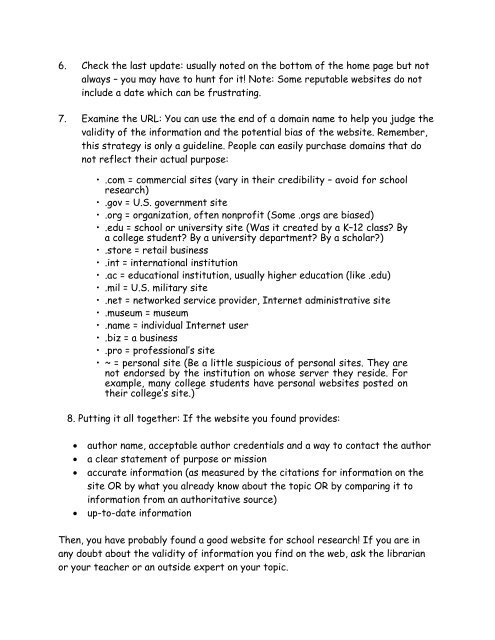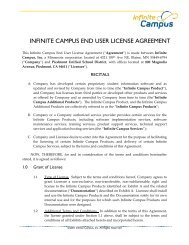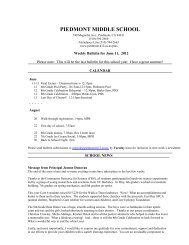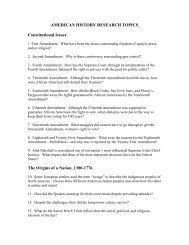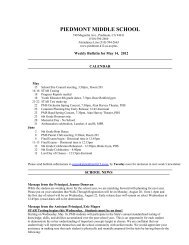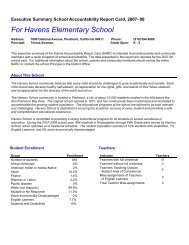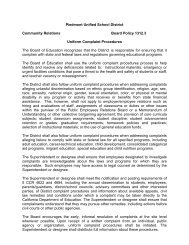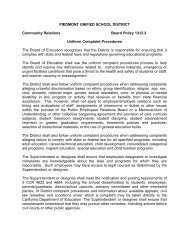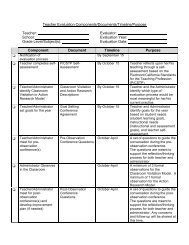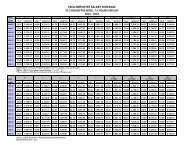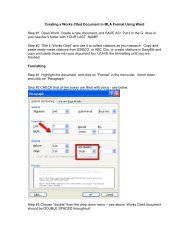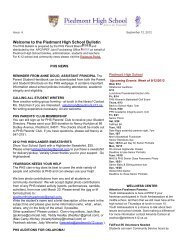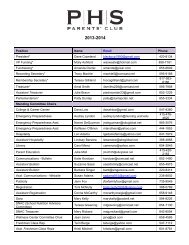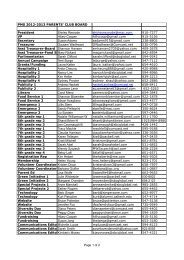Evaluating Websites: Criteria and Techniques
Evaluating Websites: Criteria and Techniques
Evaluating Websites: Criteria and Techniques
Create successful ePaper yourself
Turn your PDF publications into a flip-book with our unique Google optimized e-Paper software.
6. Check the last update: usually noted on the bottom of the home page but not<br />
always – you may have to hunt for it! Note: Some reputable websites do not<br />
include a date which can be frustrating.<br />
7. Examine the URL: You can use the end of a domain name to help you judge the<br />
validity of the information <strong>and</strong> the potential bias of the website. Remember,<br />
this strategy is only a guideline. People can easily purchase domains that do<br />
not reflect their actual purpose:<br />
• .com = commercial sites (vary in their credibility – avoid for school<br />
research)<br />
• .gov = U.S. government site<br />
• .org = organization, often nonprofit (Some .orgs are biased)<br />
• .edu = school or university site (Was it created by a K–12 class? By<br />
a college student? By a university department? By a scholar?)<br />
• .store = retail business<br />
• .int = international institution<br />
• .ac = educational institution, usually higher education (like .edu)<br />
• .mil = U.S. military site<br />
• .net = networked service provider, Internet administrative site<br />
• .museum = museum<br />
• .name = individual Internet user<br />
• .biz = a business<br />
• .pro = professional’s site<br />
• ~ = personal site (Be a little suspicious of personal sites. They are<br />
not endorsed by the institution on whose server they reside. For<br />
example, many college students have personal websites posted on<br />
their college’s site.)<br />
8. Putting it all together: If the website you found provides:<br />
• author name, acceptable author credentials <strong>and</strong> a way to contact the author<br />
• a clear statement of purpose or mission<br />
• accurate information (as measured by the citations for information on the<br />
site OR by what you already know about the topic OR by comparing it to<br />
information from an authoritative source)<br />
• up-to-date information<br />
Then, you have probably found a good website for school research! If you are in<br />
any doubt about the validity of information you find on the web, ask the librarian<br />
or your teacher or an outside expert on your topic.


